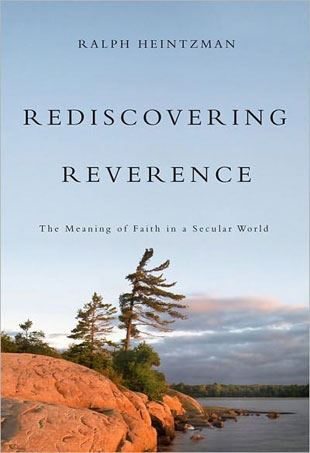Society has baptized a series of virtues of self-assertion which actively express our yearning for freedom, autonomy, and "non-union." Ralph Heintzman finds in family life another series of virtues which appeal to most people: respect, deference, commitment, concern, love, duty, fear, solemnity, joy, celebration, song, ritual, custom, ceremony, and mysticism. The author then notes:
"I propose to use the word 'reverence' to name the family of virtues associated with the natural human impulse to attachment, union with others and with the surrounding environment."
As we move through our days, there are special times when we feel emotions akin to awe. Think of all the times you have been moved, revived, and enchanted by the beauty of the natural world. Another aspect of reverence is its relationship with time. Or as Alfred North Whitehead (1861-1947) put it: "the foundation of reverence is this perception that the present holds within itself the complete sum of existence, backwards and forwards, that whole amplitude of time, which is eternity."
Heintzman refers to Paul Woodruff's view that modern societies have not lost reverence itself, but rather the idea of reverence. We look for this quality and its circle of virtues in the rock concert, big media events like the Olympics, or natural disasters which capture national attention. Because reverence points beyond a purely secular frame of reference, it does move outward into a widening sense of connectedness to community, culture, nation, and humanity as a whole. In Hinduism and Taoism, reverence is expressed in both an inward and outward journey. In fact, Heintzman goes as far as to state that the characteristic mode of spirituality is the spirit of reverence!
Whereas many people still see faith as a belief system, there are others who are convinced that faith is something you do "in a spirit of reverence, trust, and hope." Out of this perception grows an openness to the religious traditions of others.
Heintzman is very interested in how reverence can lead to changed behavior, especially in relationship to the planet. Now is the time to revive the virtues and practices of reverence which we" have forgotten covered up, or fallen silent about." This will mean "rediscovering the spiritual resources and practices buried within our Western culture, especially the Jewish, Christian, and Islamic spiritual traditions and practices." But since the Western traditions have "harboured an assertive or instrumental attitude to the natural world," these practices will need to be supplemented and reinforced by the teachings of aboriginal and Eastern traditions. Reverence is a universal spiritual practice that is our best tool to deal with the global climate crisis.
